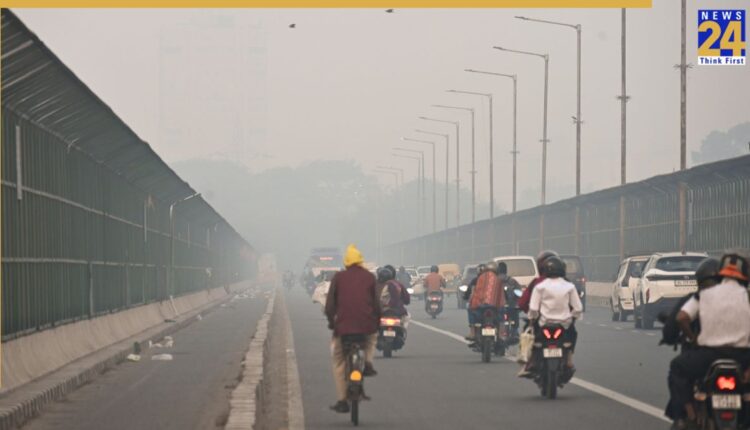Delhi AQI: Delhi’s air quality continued to remain in the “very poor” category, with no relief from rising pollution levels as winter approaches. Dense smog was reported from several areas of the national capital on Saturday, November 8. At 6 am, the city’s Air Quality Index (AQI) was recorded at 336, according to data from the Central Pollution Control Board (CPCB).
Delhi AQI: Air quality remains ‘Very poor’
The national capital has been struggling with worsening pollution levels for the past week, as dropping temperatures, stagnant winds, meteorological conditions and rising vehicular and industrial emissions continue to trap pollutants close to the ground. Amid deteriorating air quality levels, residents in Delhi have raised concerns over the rising pollution and its impact on health. Residents have complained of respiratory problems, dry eyes, bleeding nose and difficulty in commuting due to the morning smog.
Sri Krishna, who was out for a morning walk at Kartavya Path, told ANI, “It has become colder in the last two to three days, and as the temperature is dropping, the pollution level is rising. Pollution is so high that it should be tackled on a war footing, as much as possible.”
Delhi AQI: Area-wise readings
Several areas in Delhi such as Anand Vihar, Rohini, Punjabi Bagh, Mundka, Akshardham, and Dwarka recorded AQI levels in the “very poor” category.
ITO (373), Jahangirpuri (365), Lodhi Road (317), Nehru Nagar (382), Okhla Phase-2 (338), Rohini (361), R K Puram (339), Shadipur (300), Patparganj (351), Punjabi Bagh (372), Anand Vihar (355), Ashok Vihar (358), Burari Crossing (373), Wazirpur (377), Vivek Vihar (386).
GRAP 2 measures in effect
Notably, Delhi’s air quality had deteriorated sharply ahead of Diwali, with the AQI crossing the 200 mark on October 14. This was the first major drop in air quality since June 2025. In response, authorities implemented Stage II of the Graded Response Action Plan (GRAP) to curb rising pollution levels and safeguard public health during this period.
As the sharp increase in AQI poses health risks, especially for vulnerable groups such as children, the elderly, and those with respiratory issues. Authorities have been urged to strengthen environmental measures and implement stricter pollution control strategies to combat deteriorating air quality levels. While, citizens especially children and the elderly, are advised to limit outdoor activities and use masks when going outside.

